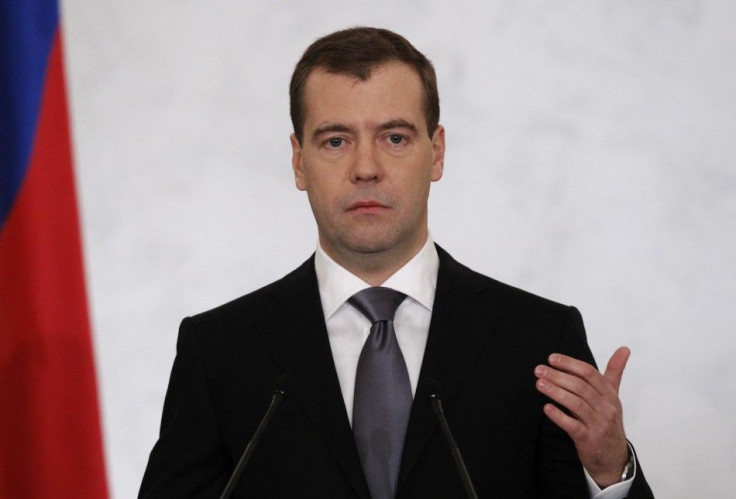Russian President Medvedev Proposes Political Reforms

In an obvious attempt to appease a rising tide of public discontent, Russian President Dmitry Medvedev has unveiled a series of political reforms, while concurrently warning opponents against creative divisions in society.
Prime Minister Vladimir Putin has been under tremendous pressure from opponents and protesters who charge that his United Russia Party maintains power through voter fraud.
Among other measures, Medvedev proposes to reinstate direct polls for the election of regional governors (which were abolished by Vladimir Putin in 2004 in favor of Kremlin-mandated appointments).
We must give all active citizens the opportunity to take part in political life, Medvedev said in a televised speech.
The presidential elections [next year] must be honest, transparent, responding to the requirements of legality and justice.”
He also proposed the creation of a “public” television station that would not have to answer to the Kremlin.
None of the owners of this new media outlet should have a determining influence on any decision-making -- neither the state nor a private owner, he said.
In addition, the president promised to introduce a law that would make it easier for a new political party to be formed. Under current rules, a proposed new party required 40,000 signatures by petition – Medvedev would drastically reduce that requirement to 500 from at least half of Russia’s districts.
Also, presidential candidates would now only need 300,000 signatures to register to run – down from the prior 2-million figure.
However, Medvedev cautioned that provocateurs and extremists would not be permitted to foment dissent in Russia.
Attempts to manipulate Russian citizens, to confuse them, stir up divisions in society are unacceptable, he said.
Steve Rosenberg, a BBC correspondent in Moscow, wrote of these reforms: “It's clear the Russian authorities are saying that they've heard the anger of the people after the parliamentary elections and know that they are demanding change. They're saying: trust us to implement that change. This way the authorities are hoping to dampen down the anti-government anger that's been swirling for the past two weeks.”
Rosenberg added: “Certainly these proposals would have been agreed with Prime Minister Putin, who talked about some of these things in his TV phone-in last week… Putin mentioned direct elections for regional governor and said it was important for the president to act as a filter. But the devil is in the detail.”
Rosenberg also indicated that Medvedev’s reforms would not satisfy Putin’s opponents and protesters.
“Following widespread reports of vote-rigging, they have been demanding the annulment of the parliamentary election results and a fresh ballot,” he wrote.
“The Russian president… gave no indication he would agree to that. Moreover, the political reforms he did propose were short on detail. But the fact that the authorities are at least talking of political reform shows the pressure they are under now. That is a direct result of the street protests.”
© Copyright IBTimes 2024. All rights reserved.











